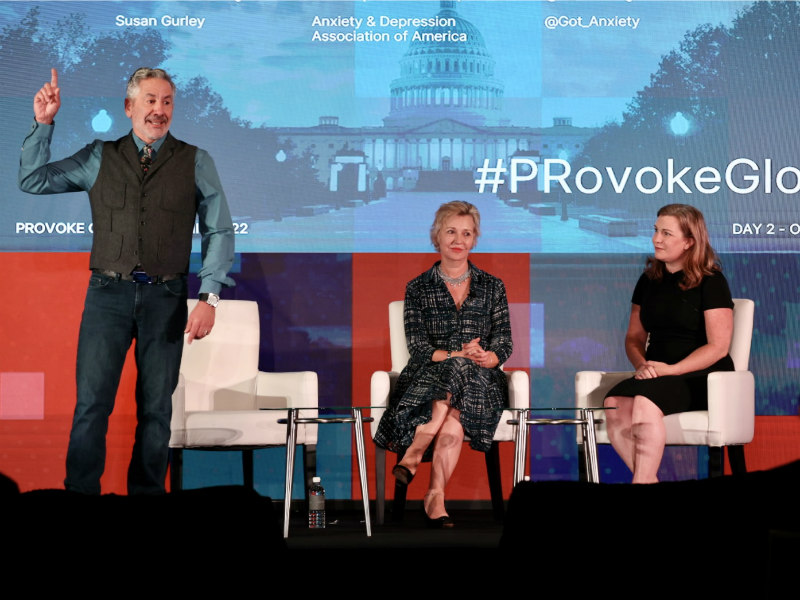Arun Sudhaman 26 Oct 2022 // 3:50PM GMT

WASHINGTON, DC — Organizations, and the communications industry in general, must recognize and address mental health issues as a matter of urgency, heard delegates at PRovokeGlobal today.
That means better understanding the nature of trauma that is affecting people today. "The way the world is now, trauma is everyday," said Ketchum US CEO Jim Joseph, while introducing the session. "It’s ongoing, it’s sustaining, it’s not going away. We as a communication industry also need to become trauma-informed, for our clients and for our people."
Katharine Manning, author of The Empathetic Workplace, acknowledged that — traditionally — trauma has been viewed as something that "happens on our own time." But "that's not really how it works", she added.
"We carry it with us, all the time. It comes into our work, in terms of our engagement, our productivity, our creativity, our communication," she explained. "The only way we’re going to get through this is together."
While these conversations have become far more open with the onset of the pandemic, we should not be too quick to congratulate ourselves, said Anxiety & Depression Association of America executive director Susan Gurley.
"I think there’s still a stigma, among some, that we as Americans should pull ourselves up by our bootstraps," said Gurley. "I still think there is a little bit of judgment. To me the real issue is parity — if you have a chronic physical condition, some of your health plans allow you to visit the doctor, many, many times. For mental health care, it’s limited — we need to really look at supporting the people with mental health issues."
And Manning had plenty of advice for businesses aiming to become more "trauma-informed", starting with the importance of "clarity and choice" when it comes to employee communication.
"You need to be very clear about the needs of the organisation. Given that, we have these deadlines we have to meet, we have these projects we have to complete," she advised. "Can we make this work given everything they are struggling with in their own lives? It’s important when you have a workforce, or even an employee that is struggling, you have to communicate so much more than you think might be appropriate. Say it again, and again, and again. The way to lower that trauma response is to make people feel safer — we are here to take care of you. Within that, we are going to give you as much flexibility as you need."
"As leaders we have our own trauma that we are dealing with," noted Joseph, before asking how leaders can better guide their teams in terms of dealing with ongoing mental health issues.
"Leaders set the tone for the organization, your energy is contagious," responded Manning. "That’s why it is so important, if you are the leader of the team that you are managing your energy well. Burnout is one of those issues where defence is the best offence."
Manning advised leaders to build a "daily reset" into their schedules, "something you do every day that is just about your mental health." More broadly, she said that we all "have to get better at talking about the things we are struggling with."
"Can you think of five people that you can call when you are having a tough day?" she asked. "Start to notice your own warning signs. When you are starting to struggle with burnout. There’s usually whispers first. You start to get sick. Maybe it’s insomnia."
Gurley also warned businesses to beware the perils of workplace communication itself, which can become a source of trauma for employees, whether in terms of inclusion or even tone.
"One of the thing we haven’t talked about is the tone of emails," said Gurley. "During the pandemic, there’s nothing worse than an email that is curt, unpleasant and makes you feel like crap. One of the things we don’t talk about enough in the workplace is the style and tone of emails. Rather than occasionally picking up the phone and talking."


































.jpg)

















